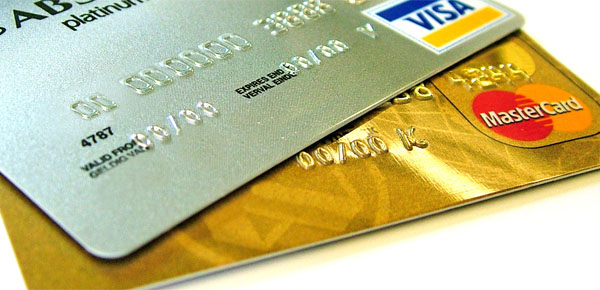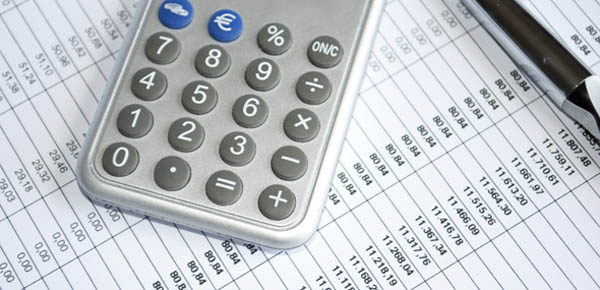A Stitch in Time…Avoding Bad Credit
June 3, 2010 by admin · Leave a Comment
Bad credit is not something you think about until the time comes for you to take a loan. So before you get to the point where loans are refused to you on those grounds, take some steps to avoid that situation.
Check your credit report. This can help you avoid trouble in several ways. More often than not, you are likely to find inaccurate information in the report. At this point you should immediately file a dispute with the credit bureaus and the creditors. Doing this before you apply for a loan or a credit card will save you a lot of trouble.
But what if the data is not wrong? There is a positive side to this as well. Now you know exactly how much you owe and to whom. The next step here is to talk to your creditors. By explaining to them as to why you are unable to pay them, you can negotiate a new payment plan or even a lump sum payment. Don’t be afraid of doing this as it is in your best interests. Do not resort to debt settlement companies. The benefit you gain from them is soon lost as you start to realize the long term impact on your finances when you use one.
Try to make your payments on time; this is one of the best ways to keep your credit score in good stead. But the best advice of all is, don’t buy what you can’t afford. If you follow that piece of advice, your chances of getting into monetary trouble drop drastically.
Debt Settlement – The Negative Side
June 3, 2010 by admin · Leave a Comment
Debt settlement sounds like a dream solution, on the surface. Briefly, it is a situation where a financial company negotiates on your behalf to bring down the amount owed, so that you can pay it off. Anyone would jump at the chance to clear their debt by paying only 50 percent of the total sum owed. But there is a catch as always.
Understand this; the lender is willing to settle only because they want to get what they can from you, rather than run the risk of not getting anything at all. So what interest does the debt settlement company have in getting you the best possible discount? This is where the not-so-obvious payment to the company is involved.
More often than not the best deal is arrived at because the company’s fee is a percentage of the amount saved. For example, let’s say you owe $50,000 to your creditor and the debt collection company negotiates for a 50 percent reduction. That means you save $25,000. If the company’s fee is 25 percent (the usual amount), you end up paying them $6,250. Sometimes they charge a fee, usually 15 to 18 percent, based on the total debt. Referring to our example, that would be a fee of $7,500 to $9,000. For person who does not have a way of settling debts, having to pay $9,000 is a lot of money. In other circumstances, the company will charge a flat rate for the time period it takes you to settle the lump sum.
For $9,000 you can find a very good attorney who can help you sort your problems in a safer way. So before you engage in any type of dealings with a debt settlement firm, seek professional advice. Otherwise you may live to regret it later.
Debt Settlement – The Positive Side
June 3, 2010 by admin · Leave a Comment
Bad liability is a problem faced by people all over the world. If these liabilities are not handled in a proper manner, legal charges can be brought against you. Some financial companies will help you to find a solution to these problems through debt settlement.
 .
.
Debt settlement is the process where you agree to pay off your debts to an entity in a lump sum.The advantage here is that, through negotiation, the lump sum can be anywhere from 20 percent to 75 percent of the original sum owed. The amount actually depends on how good the negotiator is and how lenient the lender feels about the whole situation. Generally, a good financial firm will be able to get you around 50 percent off of the original sum owed.
To get this concession, you will have to provide documentation that is requested by the financial company. Only when the details are verified will the company begin to take any action. The company will advise you on how to proceed and in the event that you have a source of regular income, they will provide you with a loan to pay off the lump sum.
But debt settlement is not for everyone. If you are close to bankruptcy but are not qualified to file for Chapter 7, then Debt settlement may be the only solution for you. Although debt settlement can be used in other situations, the abovementioned example is the ideal time to utilize this method. It is advisable to seek professional advice before engaging in any debt settlement procedures.
Posted By: 1 Stop Service
Bad Credit Cards and Their Usefulness
June 3, 2010 by admin · Leave a Comment
If you have poor credit history, then you have no choice but to resort to a Bad credit card. Unfortunately this is a, minefield in terms of financial safety, to get into.
Bad credit card companies are notorious for their high and quite often unfair interest rates. They have very low standards when it comes to valuing your credit rating. This makes it easy for anyone to get a credit card from them. However, when you have a need to resort to one of these companies, don’t choose one on a whim. You need to do extensive research before you take a decision.
Every credit card has its own peculiar set of rules and regulations. You need to understand everything that is stated in the terms and conditions. This is because they can offer you low interest rates and then catch you out with hidden charges and a whole load of restrictions. You also need to check on other fees like over-the-limit fee, late penalty fee, annual fee, etc. One more thing to keep in mind is that the interest rate is usually based on the Prime Rate, which can change abruptly.

But the silver lining here is that by choosing a Bad credit card company that reports to the three major credit bureaus, you have a good chance of improving your credit status. Assuming you make payment promptly, these payments will be reported to the bureaus. Thus your credit rating improves.
The Different Types of Bankruptcy
June 3, 2010 by admin · Leave a Comment
Debt is an unfortunate facet of life that some people have to face. Sometimes it becomes impossible for a borrower to pay off the debts that are owed. To protect the individual or the company to a certain extent, the government has made available bankruptcy proceeding that they can resort to. This helps them avoid certain lawsuits that can be brought against them by the creditors. It also allows them a chance to protect properties and stay in possession of some assets.

Chapter 7 – This is the least uncomplicated of bankruptcies. Individuals, business partners and even married couples can apply for this. A representative from a Credit Counseling Agency has to interview the party in question before the filing takes place. Along with an appearance in court, the proceeding usually last about three and a half months. Upon a successful outcome the party in question is released from past unsecured debts. Thereafter a trustee is entrusted with the task of identifying assets that will be exempted from bankruptcy. Whatever is leftover if liquidated and used to pay off the creditors.
Chapter 9 – This law is meant for municipalities. Because municipalities could be public agencies or political subdivisions it tends to be much more complicated.
Chapter 11 – Used by business corporations, there are no trustees in this situation. The corporation has to formulate a reformation plan, which may include plans to recover productivity, repay debtors by selling assets, debt consolidation, merging, etc.
Chapter 12 – Designed for farmers and fishermen only, it allows them to keep their assets and pay the creditors with future earnings.
Chapter 13 – Similar to the previous chapter, it allows the individual to keep their property and pay creditors with their future salary. An agreed percentage of the salary (10 percent or more) is allocated to pay off the debts.
Posted By: Debt Settlement Online
